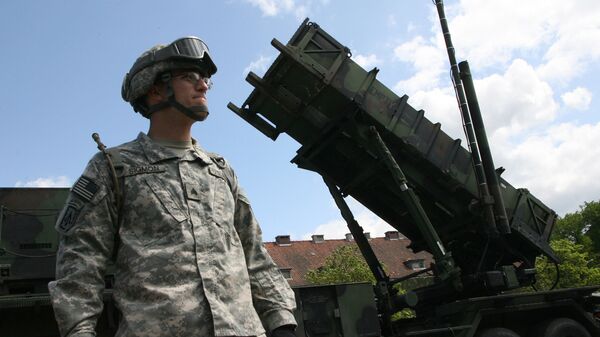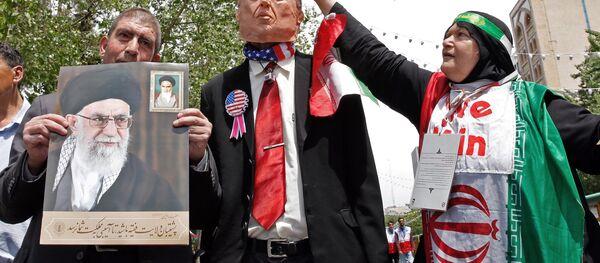Trump pulled out of the Iran nuclear deal a year ago and re-imposed sanctions, while Tehran continued to implement the accord. However, at the start of May, things took a turn for the worse, with Washington imposing more sanctions and sending its warships, fighter jets and an aircraft carrier to the Persian Gulf, as it said, to send an "unmistakable message to Iran's regime."
Just days later, Saudi Arabia accused Tehran and its proxies of an attack on its oil tankers off the coast of Fujairah along with a drone attack on its pipeline, which is claimed by Houthi rebels. Iran denied any involvement in these incidents.
On Friday, Trump announced that the US will be sending 1,500 troops and a dozen bombers to the Middle East and that it plans to sell $8.1 billion worth of weapons to Saudi Arabia, Jordan and the United Arab Emirates, bypassing Congress. US Secretary of State Mike Pompeo stated that:
"These sales will support our allies, enhance Middle East stability, and help these nations to deter and defend themselves from the Islamic Republic of Iran."
READ MORE: ‘No Talks With US': Iran Ready to Negotiate With All Gulf States — Deputy FM
Foreign affairs scholar and author of the book 'Saudi Arabia and Iran: Friends or Foes?' — Banafsheh Keynoush — said that it's not clear what the Trump administration's motives are for this weapons sale and although Tehran doesn't want to jump to conclusions, the US might be using the Iranian threat as a pretext for the trade:
"Tehran speculates that the Trump administration is attempting to rely on the military capacities of its Arab allies to deter Iran in the region as much as it can, or to do the fight, though that is a goal that is not quite attainable yet, in light of Iran's offensive and defensive military capabilities and the limited capacities of other regional armies. The threat of Iran helps accelerate arms sales to Iran's Arab neighbours, and may bring Iran to the negotiating table to discuss the Iranian nuclear programme and its influence in the Middle East".
The US administration has on several occasions said that it's not looking for war with Iran and, if this is to believed, these moves seem counterproductive, according to the foreign affairs scholar:
"If Iran is even partially correct about these speculations, it is unclear how the Trump administration's calculations will lead to any concrete results to contain the Iranian threat or to make Iran negotiate with the United States by selling these arms to US Arab allies", Banafsheh Keynoush explained.
She also added that Tehran is studying the lessons of the Trump administration's outreach to North Korea, hoping to get some answers.
During a press conference with Abe, Trump told the media and journalists that the US "will make a deal" with Iran, and the expert noted that it's likely Trump does want to talk to Tehran.
"The escalation in the US-Iran relations might serve to bring the two sides to the negotiating table, but that is far from clear. More importantly, it means that Tehran has time to buy with President Trump by suggesting that it is open to talks."
Banafsheh Keynoush said that Iran's Foreign Minister Javad Zarif and Ambassador to the UN in New York Majid Takht Ravanchi, both have indicated Iran's willingness to hold talks with the US "but not under pressure or through intimidation":
"Iran needs this time to get a sense about who it can rely on for help in the region to de-escalate the tensions, and to better understand the Trump administration's motivations for the latest arms sales. Zarif is in Iraq, and will travel to India and Pakistan. Iranian diplomat Abbas Araghchi is traveling to Oman, Kuwait and Qatar. These countries cannot help Iran like the major global powers Russia and China were able to help North Korea de-escalate tensions with the United States. But collectively, they are a major regional force in the Gulf that share a common view that tensions should soon recede between the US and Iran", the scholar concluded.
The views and opinions expressed by the speaker do not necessarily reflect those of Sputnik.





